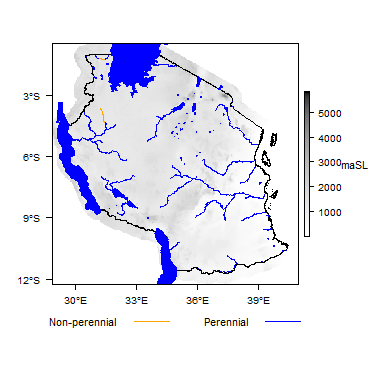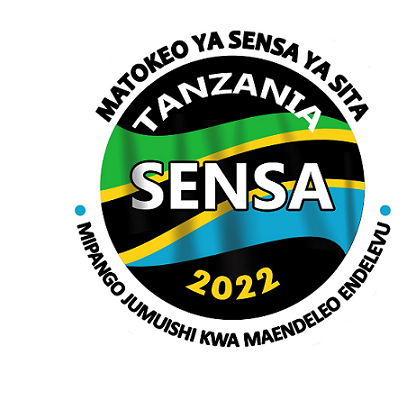| Published By: | Mary C. Gwera |
|---|
From FAUSTINE KAPAMA-Judiciary, Dodoma
The Judiciary of Tanzania has taken steps to implement the recommendations of the Commission formed by the President of the United Republic of Tanzania, Hon. Dr. Samia Suluhu Hassan to look at how to improve Criminal Justice Institutions in the country.
This was revealed by the Chief Justice of Tanzania, Hon. Prof. Ibrahim Juma during Law Day celebration held at national level yesterday dated February 01st, 2024 at the Chinangali Parks in this country’s capital city.
The Chief Justice told President Samia, who was the Guest of Honor that after the Commission’s recommendations, he formed a Special Committee with the aim of reviewing the report and then giving proposals on how the judiciary should implement various issues raised.
"The six-member committee led by the Court of Appeal Justice, Dr. Gerald Ndika was guided by terms of reference, including analyzing and classifying the areas concerning the judiciary and giving advice on the best way to implement them and provide solutions," he said.
Likewise, the Committee classified the areas specified by the Commission, which needed to be improved by judiciary stakeholders, which the results of those improvements will affect the judiciary and recommend appropriate measures to take.
The Chief Justice said that the Judiciary Committee identified 18 areas that directly concerned the judiciary and six others that, although they concern other criminal justice stakeholders, may affect the duties of the judiciary.
"After these issues were discussed and accepted as the judiciary’s response to the President's Criminal Justice Commission, the Judiciary validated and presented them to the Secretariat of the Criminal Justice Commission," Prof. Juma said.
Thus, he said, it was the responsibility of every criminal justice institution to be on the front line in achieving reforms in the criminal justice system as was mentioned in 2007 by Judge Roger Hamel-Smith, former Chief Justice of Trinidad and Tobago.
Hon. Prof. Juma quoted Judge Hamel-Smith as saying, "In talking about crime and criminal justice reform it is easy to play the blame game: to blame the criminals, the police, politicians, the DDP, magistrate, judge. The time for blame has stopped. Now it's time for action and change, meaningful change begins with us.
The Chief Justice used the opportunity to explain the areas of reforms that are within the power of Criminal Justice Institutions, including the use of Information and Communication Technology (ICT) to increase efficiency and expand the scope of services and reach more citizens.
Hon. Prof. Juma explained that the use of ICT is of great help in ensuring timely and cost-effective delivery of justice and moving judicial services closer to the people.
"The ICT has brought and will continue to bring a greater revolution in the delivery of justice efficiently and on time when the judiciary continues to collaborate closely with stakeholders and citizens...
“...the Fourth Industrial Revolution requires public and private institutions to ensure that their technology systems are integrated at all times in order to achieve efficiency and transparency in the provision of services to the public," he said.
Thus, he pointed out that the presence of the National Communication Backbone (ICT Broadband Back-Borne) is important in connecting various Court centers, stakeholders and users of online judicial services.
He said it is time for public institutions that have invested heavily in technology systems to be connected so that those systems can read each other through the Fourth Industrial Revolution.
"The biggest task we criminal justice stakeholders have is to have a system that connects all our stakeholders to facilitate the exchange of information," the Chief Justice said.
He also pointed out that criminal justice institutions still have a lot of work to do to prepare themselves before reaching the point of integrating the ICT systems so that they can read each other fully, thus bringing the intended benefits.
“On the judiciary's side, we have already begun to integrate our Case Management System with other systems of criminal justice stakeholders so that all important stakeholders whose information the judiciary will need to use in making decisions, we can have agreements with them to exchange information,” Hon. Prof. Juma said.
He named some of the Stakeholders as the National Prosecution Office; Office of the Attorney General; Office of the Chief Government Chemist; National Identity Authority; Business Registration and Licensing Agency and the Registration, Insolvency, and Trustee Agency.
Speaking at the event, the Attorney General, Hon. Dr. Eliezer Mbuki Feleshi presented a special request to the Government to continue to strengthen the justice delivery infrastructure by allocating a budget for the construction of Government Legal Institutions Integrated Centers.
He said that one Center will be used by the Attorney General's Office, the Solicitor General's Office, the National Prosecution Office and its stakeholders.
"The Integrated Centers that are being built in Ilemela Mwanza and Arusha have already shown how easy it will be for State Attorneys to reach the Integrated Centers of the High Court to enable stakeholders and citizens who need the services of these government institutions to be served in a short time and with high quality," he said.
In addition, the Attorney General noted that the Centers will reduce office operating costs for stakeholders by avoiding the need for each Institution to build or rent its own offices.
He promised the President, the Chief Justice and other stakeholders that his Office will continue to cooperate with the judiciary as it carries out its constitutional responsibilities to deliver justice.
Hon. Dr. Feleshi also noted that in order for reforms in the criminal justice system to be successful, citizens and stakeholders who have the responsibility to appear in court should provide sincere cooperation in the various ongoing processes in improving the Criminal Justice System and the institutions involved.


